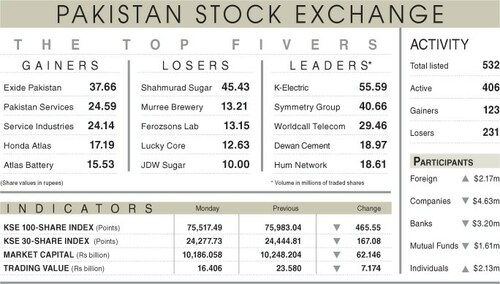
KARACHI: Sindh Labour Department’s Joint Director Gulfam Nabi Memon said the Sindh government has enacted 13 labour laws since the 18th Amendment.
Speaking at the seminar ‘Responsible Business Practices in Sindh’ organised on Thursday by the Pakistan Institute of Labour Education and Research (Piler) and Ethical Trading Initiative (ETI), he mentioned that his department initiated a training programme in collaboration with the International Labour Organisation (ILO) to train labour inspectors.
Participants at the seminar underscored the need to ensure implementation of core labour standards and ethical trade practices in all businesses across Pakistan to improve efficiency and productivity.
Chairperson, Sindh Human Rights Commission Justice (retired) Majida Razvi, while presiding the event, said that under the European Union’s GSP+ scheme Pakistan has committed to ratify and implement 27 international conventions and covenants including eight core standards of the ILO and seven conventions and covenants of the United Nations.
She noted that Pakistan still has a long way to actually implementing all these conventions for compliance of GSP+.
ETI Head of Modern Slavery Strategy, Cindy Berman highlighted her organisation’s mission to improve the lives of people working in global supply chains. “Our focus is on the working conditions in labour-intensive production where wages and skills are relatively low and workers are most vulnerable, for example, food and fresh produce, garment and footwear.”
ETI with its 125 members is an alliance of companies, trade unions and NGOs who are collaborating to improve working conditions in global supply chains, developing good practice guidance and building capacity in the supply chains.
On the occasion, Executive Director Piler Karamat Ali traced the history of labour rights movement in the world.
Quoting Oxfam’s 2018 Report on poverty, he said that there is a concentration of wealth in the world, leading to an increase in poverty and inequality.
Published in Dawn, April 6th, 2018














































Dear visitor, the comments section is undergoing an overhaul and will return soon.